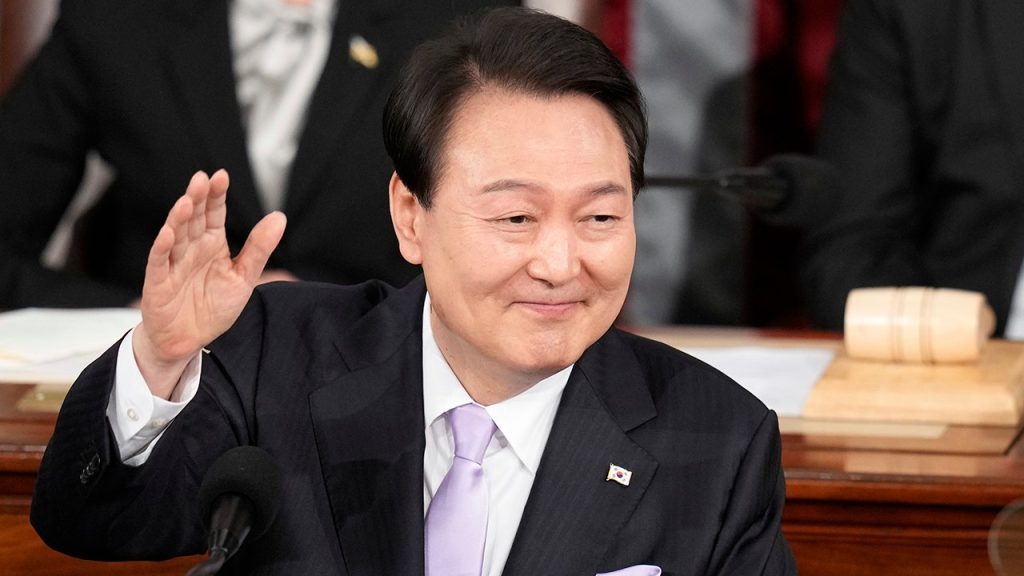A South Korean court has approved an arrest warrant for President Yoon Suk Yeol, who has been impeached and suspended from power due to his decision to impose martial law on December 3. This is the first time an incumbent president in South Korea has had an arrest warrant issued against them, marking a significant development in the country’s political landscape. Investigators are looking into possible insurrection charges against Yoon, who now faces a criminal investigation. The court’s decision to approve the warrant comes amid heightened tensions in the country following the imposition of martial law.
The Corruption Investigation Office for High-ranking Officials confirmed that the Seoul Western District Court approved the warrant for President Yoon, signaling a major step in the criminal investigation against him. Yoon’s decision to impose martial law raised concerns among South Korean authorities and citizens alike, leading to his impeachment and suspension from power. The investigation into possible insurrection charges against Yoon suggests that there may have been serious consequences to his actions, which have caused political turmoil in the country. The court’s approval of the arrest warrant indicates that the legal system is taking this matter seriously and is pursuing justice.
Local media in South Korea have closely followed the developments surrounding President Yoon’s arrest warrant, highlighting the unprecedented nature of the situation. The fact that this is the first time an incumbent president in the country has faced an arrest warrant underscores the gravity of the allegations against Yoon. The investigation into possible insurrection charges suggests that there may have been significant threats to the country’s security and stability as a result of Yoon’s decision to impose martial law. This has further intensified the political crisis in South Korea and raised concerns about the future of the country’s leadership.
President Yoon’s arrest warrant comes at a time when South Korea is still reeling from a deadly plane crash that killed 179 people. The tragic incident has added to the country’s challenges, with investigators from the US being sent to assist in the investigation. The combination of political turmoil and a national disaster has placed immense pressure on the South Korean government and raised questions about its ability to effectively respond to crises. The arrest warrant for Yoon underscores the complexity of the challenges facing the country and the need for swift and decisive action to address them.
The court’s decision to approve the arrest warrant for President Yoon sends a strong message about the rule of law and accountability in South Korea. By holding the country’s leader accountable for his actions, the legal system is demonstrating its commitment to justice and upholding the constitution. The investigation into possible insurrection charges highlights the seriousness of the allegations against Yoon and the potential consequences of his actions. As South Korea grapples with political turmoil and a national disaster, the approval of the arrest warrant is a critical step towards restoring stability and restoring public trust in the government.
In conclusion, the approval of an arrest warrant for President Yoon Suk Yeol marks a significant development in South Korea’s political history. This unprecedented move reflects the seriousness of the allegations against Yoon and the need to uphold the rule of law. The investigation into possible insurrection charges highlights the potential consequences of Yoon’s decision to impose martial law. As South Korea faces political turmoil and a national disaster, the approval of the arrest warrant underscores the challenges facing the country and the importance of accountability in governance. The legal system’s pursuit of justice in this case is a crucial step towards restoring stability and ensuring that those in power are held responsible for their actions.


